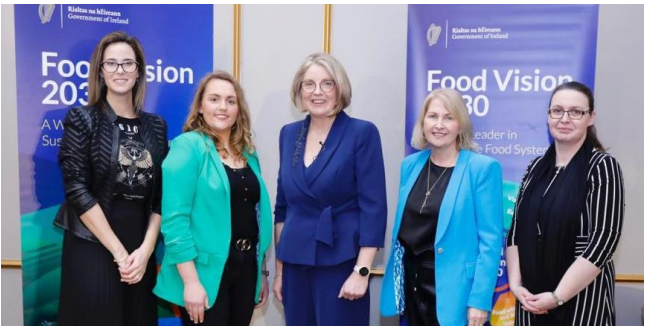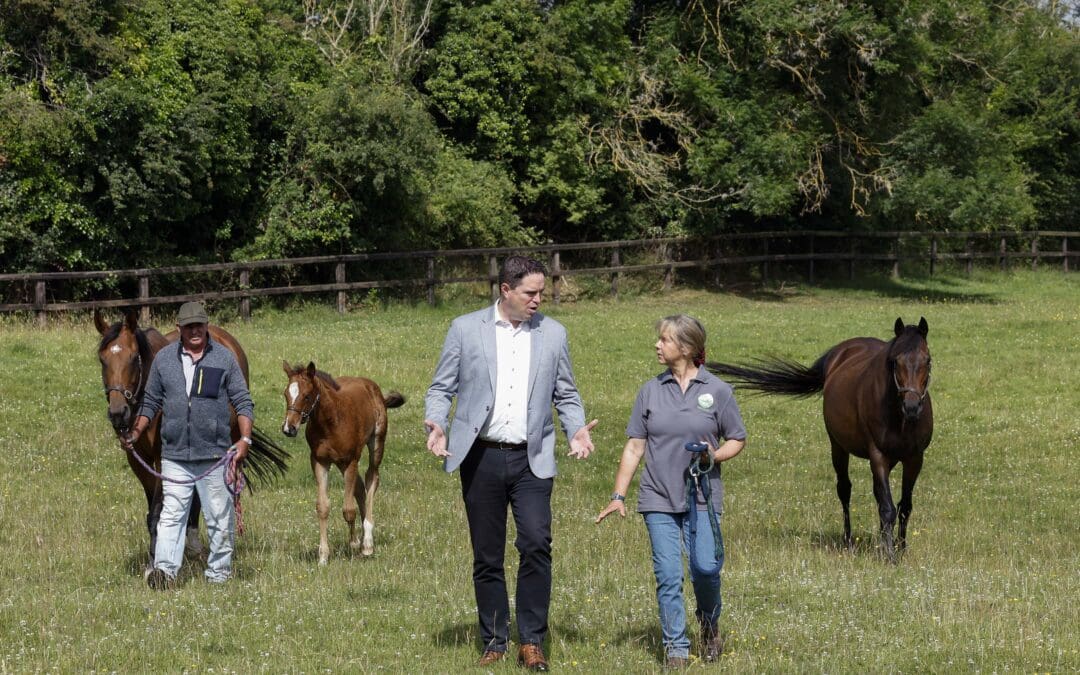The Department of Agriculture, Food and the Marine (DAFM), has launched a National Women in Agriculture Action Plan. The action plan is the result of discussions during the National Dialogue on Women in Agriculture. This initiative examined gender equality in farming and the wider agri-food sector, and focused on solutions to increase the visibility and status of women in agriculture.
A report was compiled, gathering a range of recommendations that arose in workshops held on the day. These recommendations were compiled into a 12-point Action Plan by the Women in Agriculture Working Group. This working group have agreed to continue to meet to monitor the progress of implementation.
Minister McConalogue said at the launch of the National women in Agriculture Action Plan “I am committed to promoting and improving gender balance at all levels of the agri-food sector and have demonstrated this commitment by taking forward some key commitments in support of equity across the industry. This includes the introduction of a new TAMS rate for women farmers as well as making considerable progress toward the 40% female representation on the State Boards under my remit. The Report of the Dialogue provides insight into the challenges and experiences of the women in attendance, while the Action Plan provides focus for future work on this important issue. The Working Group will now explore the practicalities of delivering the necessary changes and initiatives to improve the daily lives of women throughout the agri-food sector and I look forward to seeing those changes take effect.”
Minister Hackett also expressed her satisfaction, “On many farms across Ireland, it is women who are thinking outside the box and we need to support that innovation as much as we can. I would encourage not only women in the industry but husbands and sons, brothers and uncles to look at this plan and consider how they can play their part on the ground.”
The 12 actions outlined in the National Women in Agriculture Action Plan are:
1. Host a series of demand driven webinars/local events (considering local needs) to encourage and promote increased female interaction, leadership, and participation in the sector.
2. Increase promotion of agriculture as a viable career for women and young girls in primary and post-primary schools, to be progressed through with Agri Aware and the Department of Education.
3. Liaise with Teagasc and third level education providers to ensure that there are options to ensure the highest possible female participation (e.g. for those who have caring responsibilities).
4. Implement the use of more inclusive language and imagery in communications to farmers and about farming.
5. Promote and normalise female succession, including the consideration of any changes required to policy, taxation, legislation and DAFM schemes.
6. Liaise with Dept of Finance and the Revenue Commissioners on any barriers for women farmers within the taxation system, and to ensure greater inclusivity and fairness.
7. DAFM to consider sponsoring a “Women in Agriculture Innovation and Excellence Award” within an existing award programme(s)to acknowledge and recognise those who are leading the way in the Agri-food sector.
8. Establish a working group to review internal DAFM scheme eligibility and educational requirements to ensure maximum opportunities available to women farmers and to establish a process for the consideration of the issue in the design and implementation of all schemes, including improved recording and reporting of gender data.
9. Review procedures and processes in place for the inclusion of women on herd numbers and Herd-Keeper across the DVO network and external agri-agencies.
10. Create a dedicated space on the DAFM website, which would become a hub for all things related to women in agriculture.
11. Undertake research on women in agriculture.
12. Promote the role of women in improved sustainability for the sector, social, environmental, and economic.
The Action Plan and Report from which it was compiled can be accessed here.




